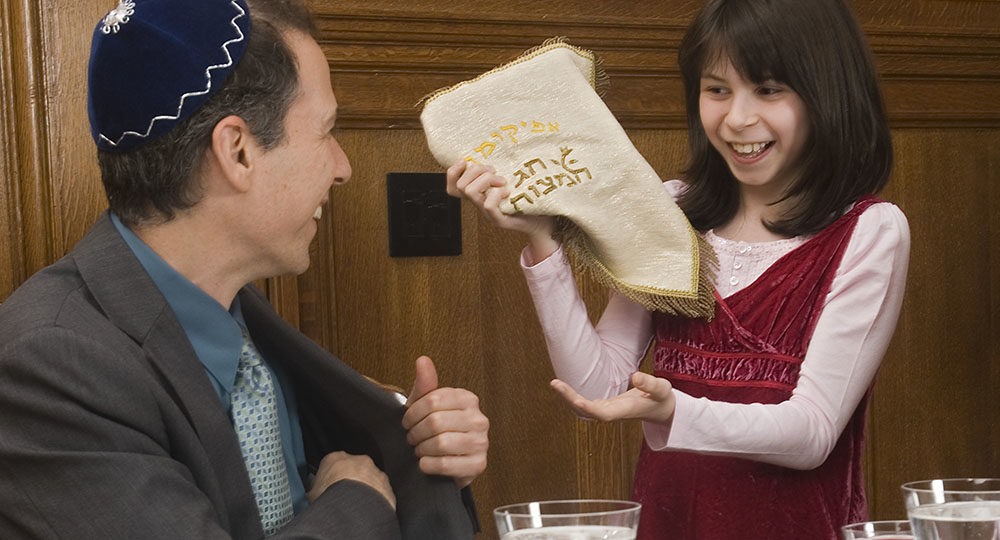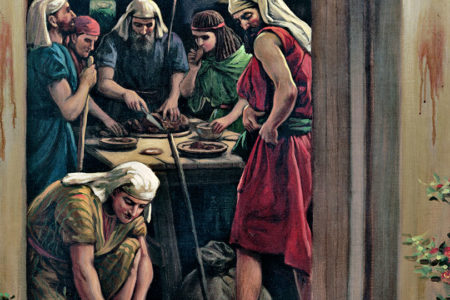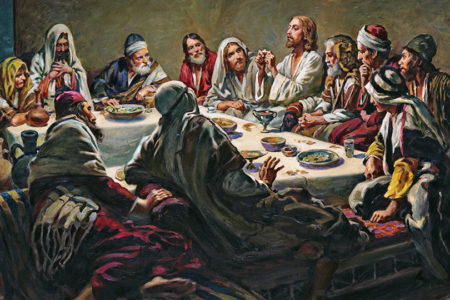The Marvelous Afikomen
One of my most vivid childhood memories of celebrating Passover with my family is of finding the hidden afikomen and demanding my reward: “I’d like the bike I saw in the store window!” I told my dad.
Observing Passover (Hebrew, Pesach) at my grandparents’ home was a mixed blessing. The food and family time were great; the seder was long and sometimes boring. Year after year, as we commemorated that first Passover and the freedom from bondage it brought, the highlight of my evening was the drama of the afikomen. It provides a poignant message for both Jewish people and Christians.
A beautifully decorated white linen bag or the like, with the Hebrew word matzoh embroidered on it, sits on the Passover table next to the seder leader. This matzoh tash, or unity bag, holds three matzohs, each in its own compartment. The two most common rabbinical interpretations of the three matzohs are that they represent (1) the unity of the patriarchs: Abraham, Isaac, and Jacob, or (2) the three classes of Jewish people: the priests; the Levites; and the am ha’aretz, meaning “people of land” (ordinary people). The idea is that, when we are united, we are strong.
Jewish people follow the order of the seder service in a booklet called the Haggadah. At a specific time, the leader takes the middle matzoh from the unity bag, breaks it in half, and wraps it in a white linen cloth. Then, as the Passover participants cover their eyes, he hides it. That wrapped, broken matzoh is the afikomen.
After the Passover meal, the drama of the afikomen unfolds. There is great excitement as the children are dismissed to search for the missing matzoh. The boy or girl who finds it receives a prize. Probably every Jewish child who has ever participated in the search wants to be the one to find the afikomen because tradition says the finder can demand anything he wants from the leader, who must redeem it.
Rabbis say each person at the seder must then eat a piece of afikomen. They say it is dessert and signals the end of the meal; nothing more should be eaten afterward.
The biblical account of the Passover, of course, centers on God redeeming His people through the blood of the lamb. Many rabbis teach the afikomen takes the place of the paschal sacrifice. So the afikomen’s taste and significance should linger as long as possible.
If the afikomen brings drama to Jewish homes, it brings even more drama to Christians privileged to observe the tradition. The reason is the marvelous picture the afikomen paints of Jesus as the Passover Lamb.
The three matzohs in a unity bag perfectly symbolize the three Persons of the triune Godhead. As the second Person of the Godhead, Jesus was broken, wrapped in burial cloths, and buried—just as the middle matzoh is broken, wrapped, and hidden. Then Jesus arose from the dead and was seen by many—just as the afikomen is brought back and seen by everyone.
Jesus Himself took the unleavened Passover bread and broke it, saying, “This is My body which is broken for you” (1 Cor. 11:24). He partook of His final Passover and then became the final Passover for us.
Rabbis say afikomen means “that which comes later” or “dessert.” Yet the Greek word aphikomenos in the aorist tense means “He has come,” making the message of the afikomen the message of the gospel. As the Jewish people remember the lamb that brought them redemption from the bondage of slavery, Christians see Jesus providing redemption from the bondage of sin.
Even though I found the afikomen that year, I didn’t get my bike. I got a dollar. But the Lord had so much more in store for me. One day many years ago, I realized ”He [Jesus] has come” to redeem me from the bondage of sin. And there has been nothing boring about my new life in Him.







Do you have one or more references of an Orthodox Rabbi(s) that say the Afikomen takes the place of the lamb today? I have heard this before but have never seen any references. I think it would help greatly.
Shalom,
Sheldon
Based on the Mishnah in Pesahim 119b, the afikoman is a substitute for the Passover sacrifice, which was the last thing eaten at the Passover meal during the eras of the First and Second Temples and during the period of the Tabernacle.